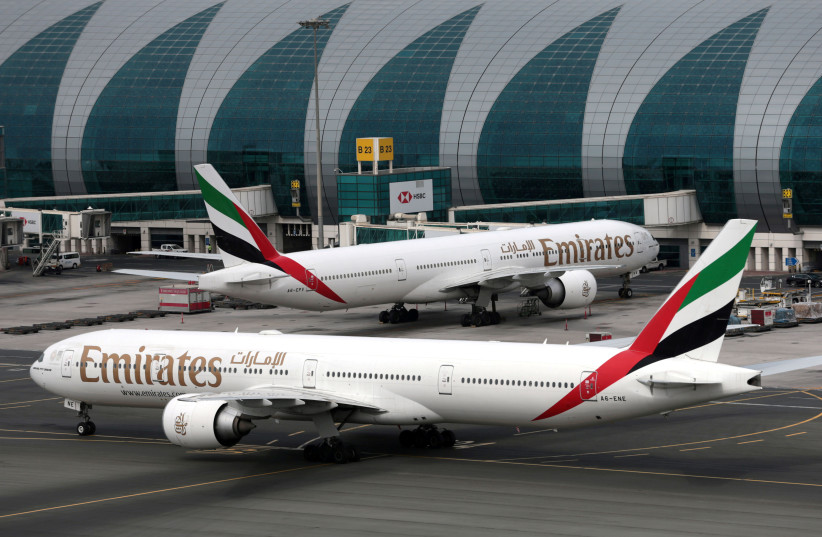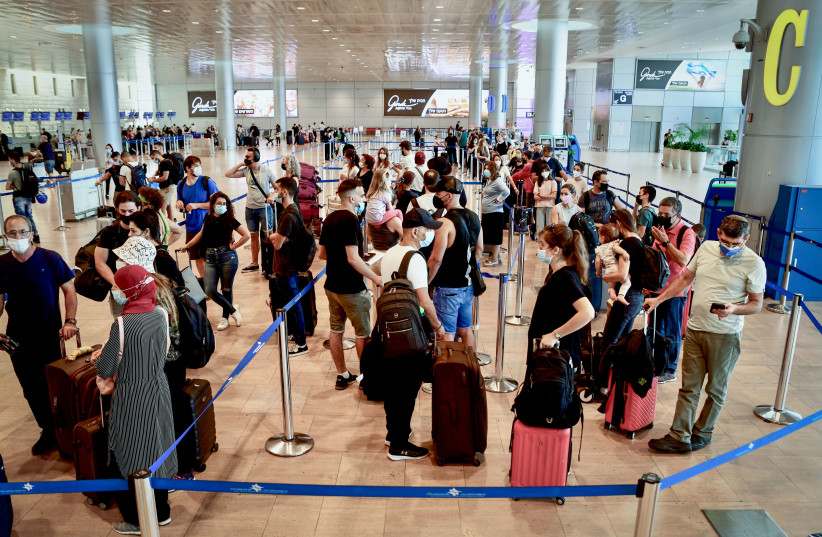MARRAKECH – Tourist movement in and out of Israel exploded with the Abraham Accords and will only grow, but the industry needs to prepare in order to handle it correctly, Israir CEO Uri Sirkis told some 300 tourism industry leaders at the annual conference of the Israel Association of Travel Agencies and Consultants on Wednesday in Marrakech, Morocco.
“This year, 19 million people came through Ben-Gurion Airport; 2023 is expected to see 24 million; in five years, it will be closer to 30 million,” he said. “When that does happen, the Israeli companies, as they are right now, will not have the capacity to carry all of that. That vacuum will need to be filled by low-cost airlines. Herein lies the opportunity.”
Sirkis spoke at a panel with a few other airline travel heads, including Adi Azoulay, the publisher of Passportnews, a global travel information site under the Passport MediaGroup; El Al CEO Dina Ben-Tal; Arkia CEO Gadi Tepper; and Yoni Waxman, one of the owners of the Ophir Tours Travel Agency. The panel was moderated by Globes’ travel reporter Michal Raz Chaimovitz.
The Abraham Accords and Middle Eastern travel
The Abraham Accords “changed everything,” Sirkis said, noting an interesting element that adds a whole new level to travel factors: the weather. The Accords normalized ties between Israel and the United Arab Emirates on September 10, 2020, aided by the Americans.

Normalization with Bahrain shortly followed, then with Morocco and Sudan. From a climate perspective, these are places that are warm in the winter, affecting the whole dynamic of holiday travel destinations.
Sirkis said that the usual business patterns of the final quarter changed completely, effectively erasing the concept of seasons for these Israeli companies, which could now fly to the UAE in December.
Ben-Tal added that for El Al, it actually created more cooperation opportunities than competition. The company could now partner with other airlines and travel companies based in these countries that could offer the customer a completely new variety of world travel leisure options.
“It also opens the door to groups – the options are endless,” Bel Tal said, adding jokingly, “now we are just waiting for Oman [to normalize ties].”
The accords, seminal in their own right, came in the middle of the global COVID-19 pandemic. Based on stats published on the website of the World Tourism Organization, the United Nations body “responsible for the promotion of responsible, sustainable and universally accessible tourism,” tourism dropped 65% in February 2019 and reached the astounding decrease of 90% in March.
“Have we actually bounced back from COVID?” asked Chaimovich.
Ben-Tal responded that though virtual platforms have certainly taken their place, “there is no replacement for face-to-face events. We are here to connect Israel to the world and the world to Israel.”
Azoulay added that the classic portrayal of a travel agent is long dead, especially after the coronavirus. “The travel agent standing and selling to passersby on Ben Yehuda [Street] – that’s gone,” he explained. “People are looking for something else now.”
The post-COVID customer wants to “know everything they need to know about the place they’re going to – that’s where the agents come in. The agent that closes his office at 5 p.m. is gone. The ones that are constantly available for their customers – they are the ones that stay.”

“You really think people are willing to pay for that kind of service?” Chaimovitch asked.
“I’m sure of it,” responded Azoulay.
Post-accords, Israel has growing ties with the broader Arab world. For that to continue, “we need a set security policy,” said Tepper.
In his wishes for the steps for the steps that should be taken by the new incoming Israeli government, he said that “we need to solve the security issue so that we could do that [much] more: for the ones who stop over as well as for the ones who come to visit.”
